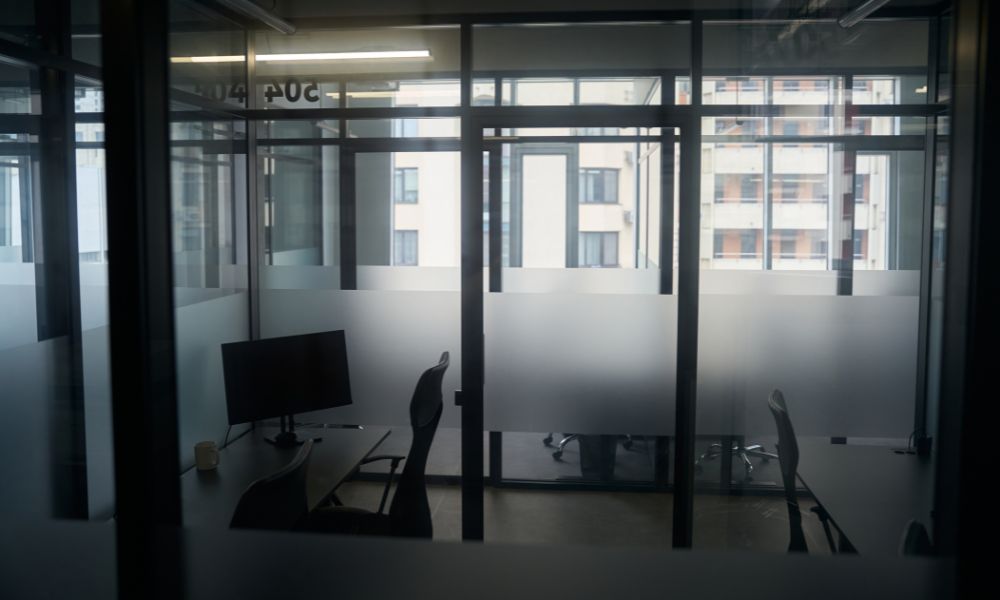As businesses continue to shift away from home offices, many are on the hunt for the perfect workspace. And with all the flexible options available now, it’s really changing how companies approach their work environment.
But here’s the thing: choosing the right office setup isn’t just about space—it can impact everything from company culture to employee satisfaction and productivity. So, what’s the best fit for you? Whether you’re considering the collaborative vibe of a shared office or the quiet focus of a private space, each option offers unique benefits. The key is figuring out which one aligns with your team’s needs and your long-term goals.
Understanding Shared Office Spaces
A shared office space is an arrangement where multiple businesses or professionals share the same physical space, often in a communal environment. These spaces are designed to provide flexible work environments, where businesses can rent areas such as hot desks, dedicated desks, or even private meeting rooms within a larger coworking space.
Shared offices are ideal for smaller companies, startups, or digital nomads looking to work alongside like-minded professionals.
The key characteristics of a shared office environment include open workspaces, a collaborative atmosphere, and flexible leasing terms. This setup allows for easy interaction between other businesses, fostering networking opportunities and the exchange of new ideas. Many coworking spaces also offer relaxation areas, phone booths for private calls, and communal nature spaces to enhance the working experience.
Understanding Private Office Spaces
A private office space provides businesses with exclusive access to their own workspace, offering more control over the office layout, security, and daily operations. Companies that rent private offices typically prefer the privacy and brand identity that comes with having their own office. This setup is often chosen by businesses that need a dedicated space for employees to focus without the distractions of a coworking environment.
Different types of private office setups are available, from traditional office spaces and executive suites to virtual offices that offer private meeting rooms on demand. This level of exclusivity is ideal for businesses with more employees or those that require frequent private meetings with clients or partners.
Advantages of Shared Office Spaces
Shared office spaces have become a popular option for businesses seeking a cost-effective and flexible work environment. They offer a variety of benefits that cater to the needs of smaller companies and startups looking to grow without the burden of long-term commitments.
- Shared office spaces provide cost efficiency, allowing businesses to save on overhead expenses.
- These spaces offer excellent networking opportunities by working alongside other businesses.
- Access to shared amenities like meeting rooms, high-speed internet, and communal areas is often included in the rental price.
- There is no need for a long-term lease, offering flexibility for businesses that may need to scale or adjust their needs.
- The scalability of shared offices makes them ideal for small businesses and startups that anticipate growth.
Disadvantages of Shared Office Spaces
While shared office spaces offer numerous benefits, they also come with a few downsides that may not suit every type of business. Privacy and control can often be a concern in such environments.
- Lack of privacy is a common issue, with open workspaces leading to limited confidential conversations.
- Noise and distractions from working in a communal environment can impact productivity.
- Businesses have limited control over the personalization and layout of the space.
- Security concerns may arise when sharing spaces and network access with other businesses.
Advantages of Private Office Spaces
Private offices provide businesses with a more exclusive and controlled environment, which is often preferred by those seeking a quieter and more secure workspace. These spaces are ideal for companies that value privacy and confidentiality.
- Having complete control over the office space and design allows for customization to match the company’s brand.
- Private offices offer privacy and confidentiality, which is beneficial for companies handling sensitive information.
- There is less noise and fewer distractions compared to shared office environments.
- A private office creates a more secure work environment, reducing the risk of security breaches.
- Businesses can present a professional image to clients and stakeholders by maintaining their own dedicated office space.
Disadvantages of Private Office Spaces
Though private offices provide a high level of control and security, they come with higher costs and additional responsibilities that businesses must consider.
- Renting private office spaces can be costly, with longer-term commitments required in most cases.
- There is less opportunity for social interaction and networking compared to shared office setups.
- A fixed office size offers limited flexibility for businesses looking to scale up or down quickly.
- Companies are responsible for the maintenance and operational aspects of their private space, including utilities and cleaning services.
Cost Comparison: Shared Office vs Private Office
When it comes to costs, the initial setup for a shared office space is often more affordable than a private office. Shared office spaces typically have lower upfront costs because many amenities, such as high-speed internet, cleaning services, and meeting rooms are included in the rental package.
The monthly rental costs for shared offices are generally lower as well, making it an appealing option for small teams and companies looking to maximize cost savings. On the other hand, renting a private office space comes with higher initial costs, as companies need to furnish and equip their own office spaces.
Space Utilization and Customization
Shared office spaces offer great flexibility in how businesses use the space. Companies can adjust their workspace needs on short notice, utilizing hot desks, meeting rooms, or private spaces depending on daily requirements. This flexibility allows teams to work in different areas based on their tasks, fostering a dynamic work environment.
On the other hand, private offices provide more control over office layout and customization, which can have a significant impact on productivity. Businesses can design their space to optimize workflow, creating an environment that supports focused, uninterrupted work.
Amenities and Services: Shared vs Private
Shared office spaces generally come equipped with a variety of standard amenities, such as high-speed internet, access to printing facilities, and shared conference rooms. Communal areas like kitchens or relaxation spaces are also common, creating a balanced work-life atmosphere.
In private offices, amenities tend to be more specialized. Companies often have the freedom to set up custom IT infrastructures, create private meeting rooms, and provide dedicated reception services. This level of control allows businesses to tailor their workspace amenities to meet specific operational needs.
Social Interaction and Collaboration Opportunities
One of the main advantages of shared office environments is the opportunity for social interaction and collaboration. Networking events, workshops, and the open nature of these spaces encourage communication across industries, allowing for the exchange of ideas and potential partnerships.
In contrast, private office settings tend to focus more on internal team dynamics, with fewer spontaneous interactions. While collaboration within the team may flourish, external networking usually happens through more formal channels like industry events or meetings outside the office.
Productivity and Work Environment
Shared offices can sometimes present distractions, such as noise from other companies or individuals working in close proximity. While the collaborative atmosphere is beneficial for networking, it can affect focus and productivity for those needing quiet, uninterrupted time.
In a private office, there is more control over the work environment, which leads to fewer distractions and improved concentration. Whether businesses choose a shared or private office, adapting the workspace to meet their specific needs is key to maintaining productivity and employee satisfaction.
Scalability for Business Growth
When it comes to scaling a business, shared office environments provide considerable flexibility. As businesses grow or shrink, shared offices allow them to easily add or reduce team members without being tied down by rigid contracts. A startup that hires a few additional employees can quickly expand their space by renting extra desks or securing private meeting rooms within a coworking space. This flexibility is especially appealing for companies unsure of their future growth trajectory.
Private offices present more challenges when it comes to expansion. Businesses with long-term lease commitments may find it difficult to scale up if their office layout is limited. For instance, a company with a set number of individual offices may have to relocate or undergo expensive renovations to accommodate growth, adding complexity to their expansion plans.
Industry Preferences: Which Works Best?
Different industries often have distinct preferences when choosing between shared and private office spaces. Startups, freelancers, and smaller companies tend to gravitate toward shared office environments due to the affordability and networking opportunities they offer.
On the other hand, established businesses and professional services such as law firms or financial companies often opt for private offices. These businesses prioritize confidentiality, brand identity, and a professional setting to meet clients in private meeting rooms. Tech and creative industries, however, are increasingly adopting hybrid models that combine the flexibility of shared offices with the control of private spaces.
Environmental and Sustainability Considerations
Shared office setups can contribute to greater energy efficiency due to the communal nature of the space. By sharing resources like electricity, heating, and cooling, these offices reduce overall energy consumption, leading to a smaller carbon footprint.
In contrast, private offices have the opportunity to incorporate sustainability at the design level. Companies can opt for green building materials, install energy-efficient appliances, and use technologies such as smart thermostats or solar panels to minimize their environmental impact.
Client and Stakeholder Impressions
The choice between shared and private offices can significantly influence how clients and stakeholders perceive a business. Shared office environments often project an image of being innovative, flexible, and cost-conscious. Companies working in coworking spaces may appear to be forward-thinking and adaptive, which can appeal to startups or creative industries that prioritize collaboration and agility.
On the other hand, private offices convey a sense of exclusivity and professionalism. Businesses that occupy their own private office spaces often present an image of being well-established, stable, and serious about their operations. The high-end appearance of private offices, with features like personalized office layouts and private meeting rooms, can be reassuring to clients looking for reliability and confidentiality in their partnerships.
Remote Work and Hybrid Office Models
As remote work continues to grow, many businesses are incorporating shared office spaces into their hybrid work strategies. Shared offices provide the perfect solution for companies that have remote employees but still need occasional access to physical workspaces for collaboration, client meetings, or team-building activities. These flexible spaces allow employees to work from home while maintaining a communal environment when needed.
Balancing flexibility and structure is key in hybrid setups, as companies look to provide a work environment that offers both autonomy and dedicated resources, ensuring that team members remain productive while having access to important office amenities when required.
Decision Criteria for Choosing Between Shared and Private Offices
Choosing between shared and private offices ultimately depends on several important business factors. Budget considerations often play a central role, with shared offices being the more cost-effective option for companies that need flexibility or have smaller teams.
Team size and growth projections also influence the decision, as shared offices allow businesses to scale easily, whereas private offices may be better suited for larger, established companies with more stable staffing needs. The nature of the business is also another key criterion—companies that require a high degree of privacy, such as legal or financial services, may benefit from the control and confidentiality of a private office.
Choosing the Best Workspace for Your Business
Selecting the right office setup is a critical decision that can affect your business’s growth, productivity, and professional image. Whether you opt for the flexibility and collaboration of a shared office space or the privacy and control of a private office, it’s important to align your choice with your company’s goals, size, and industry needs.
Each option comes with its own benefits and challenges, and understanding how they impact your team, clients, and overall operations will help you make the best decision for long-term success.


